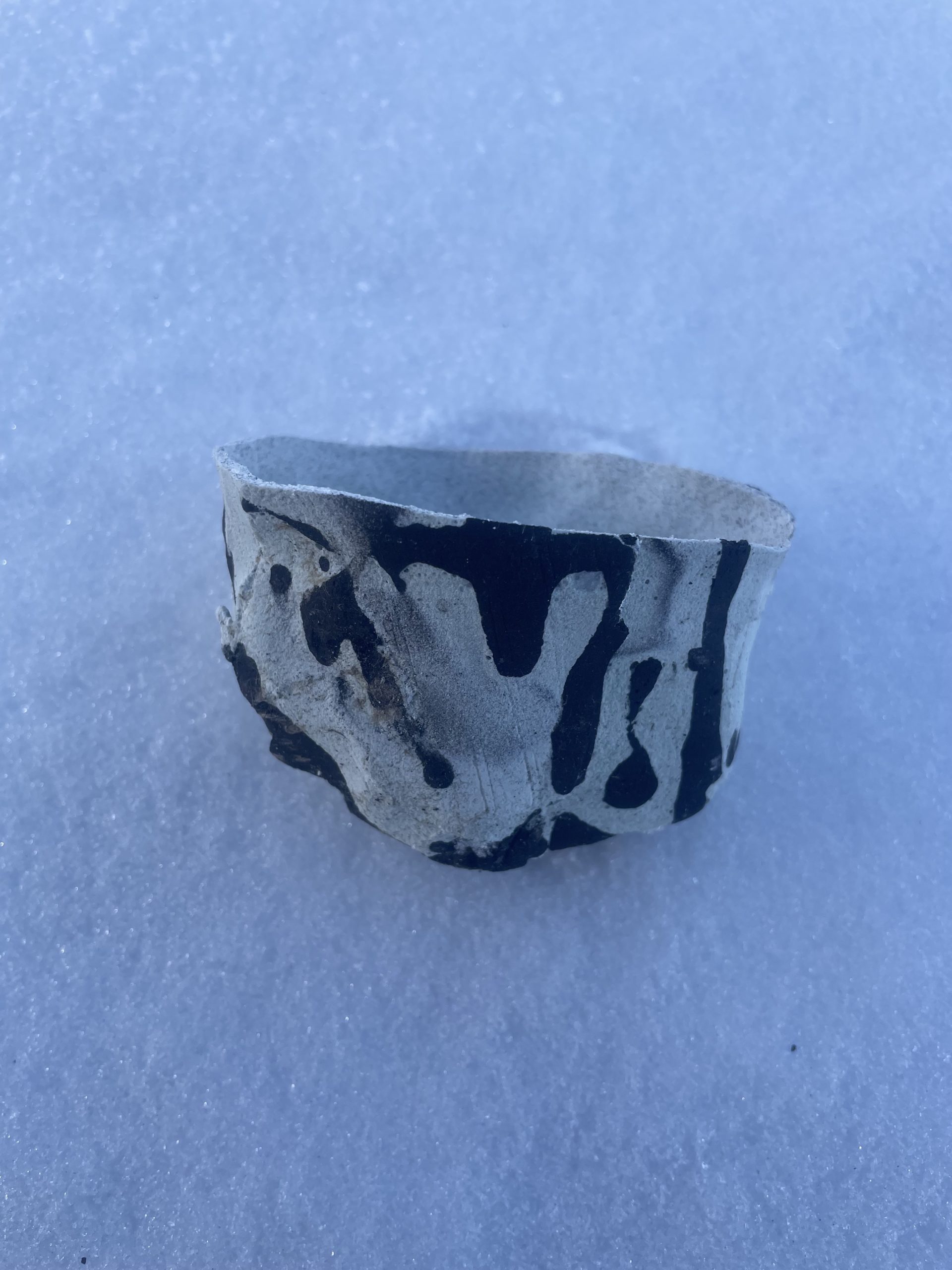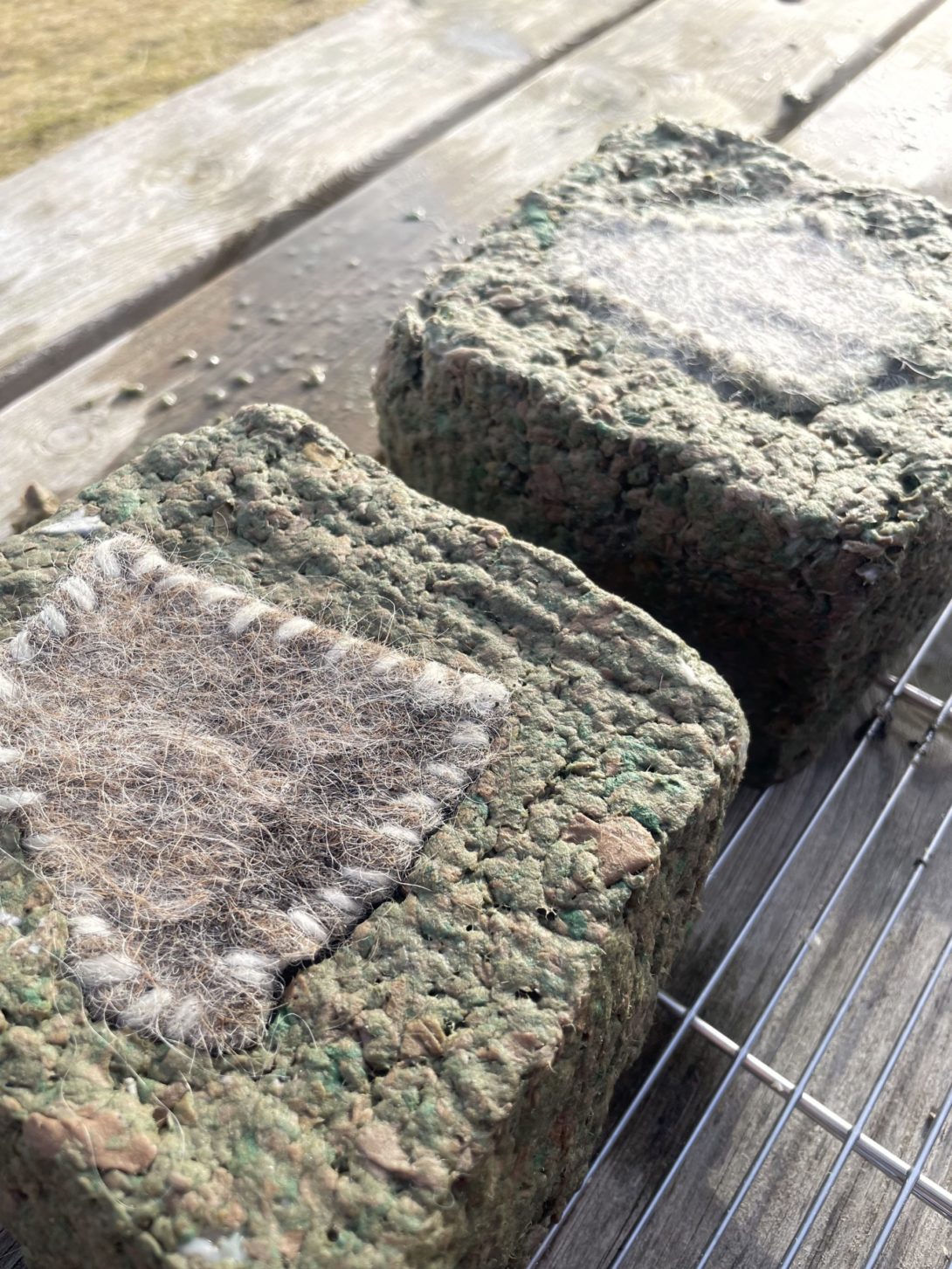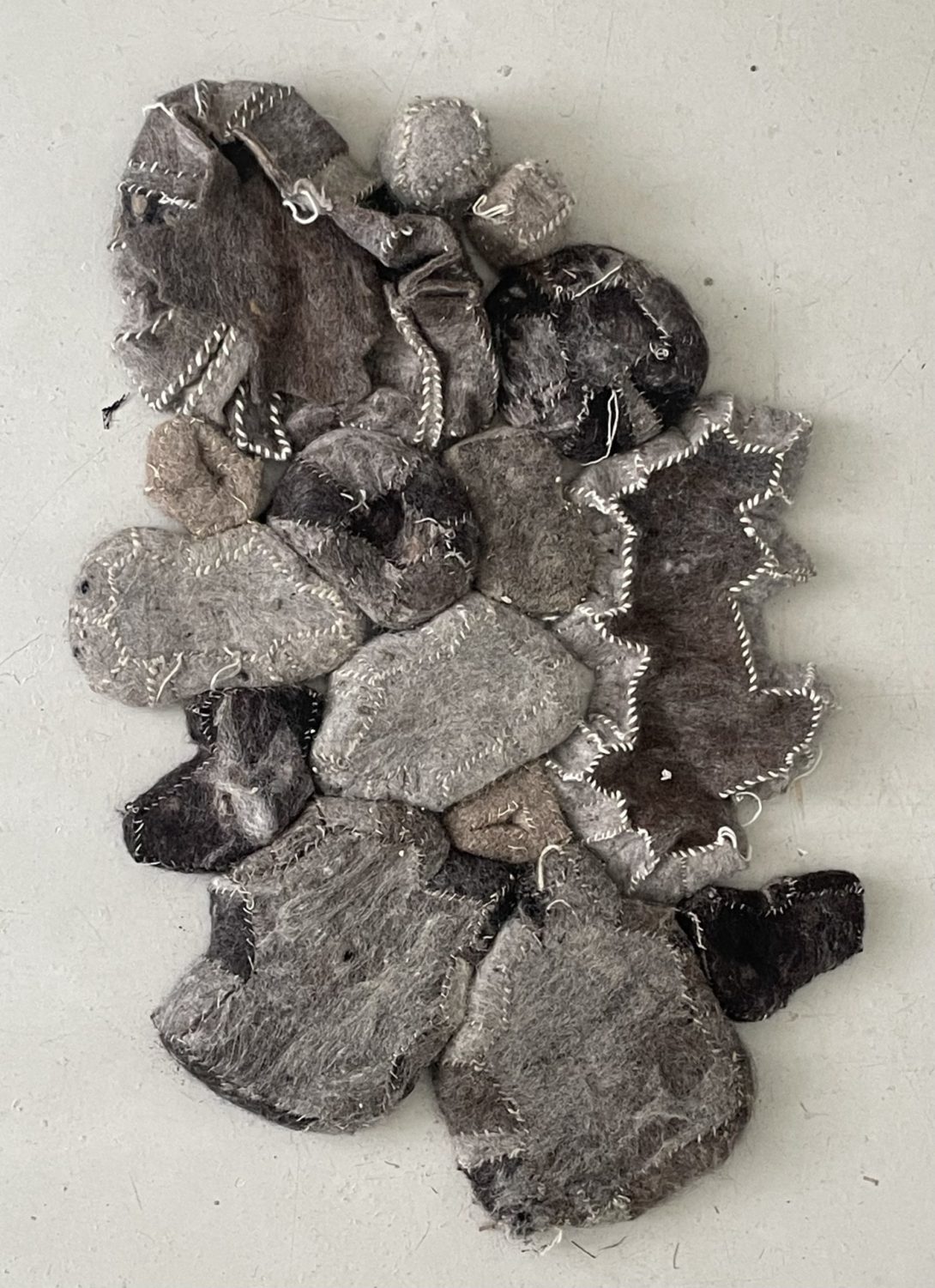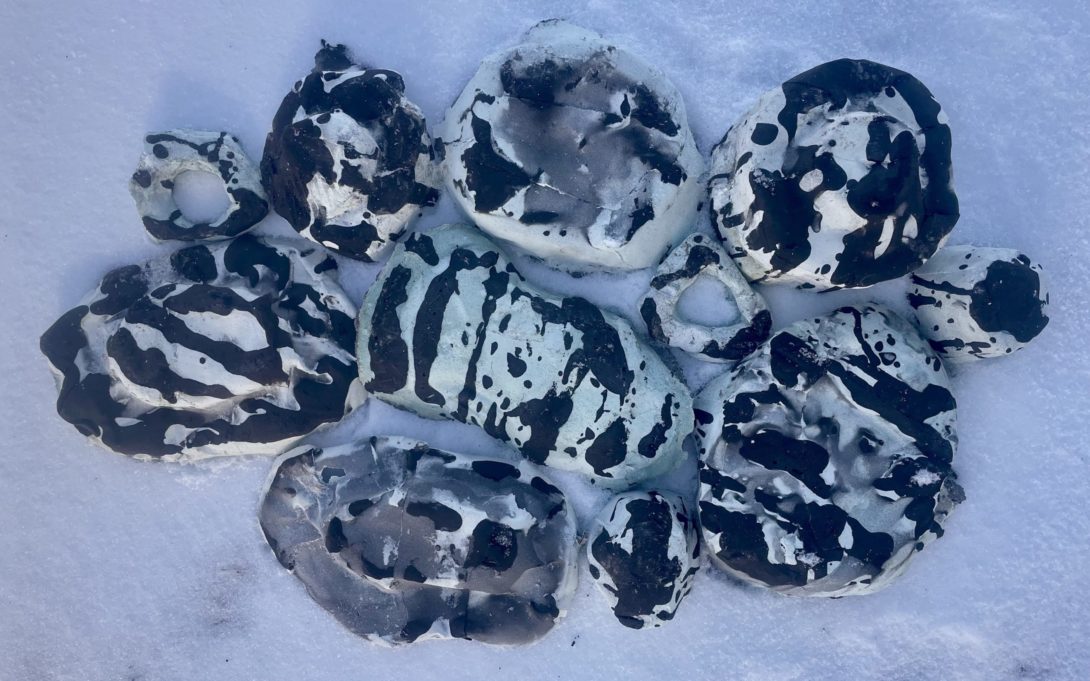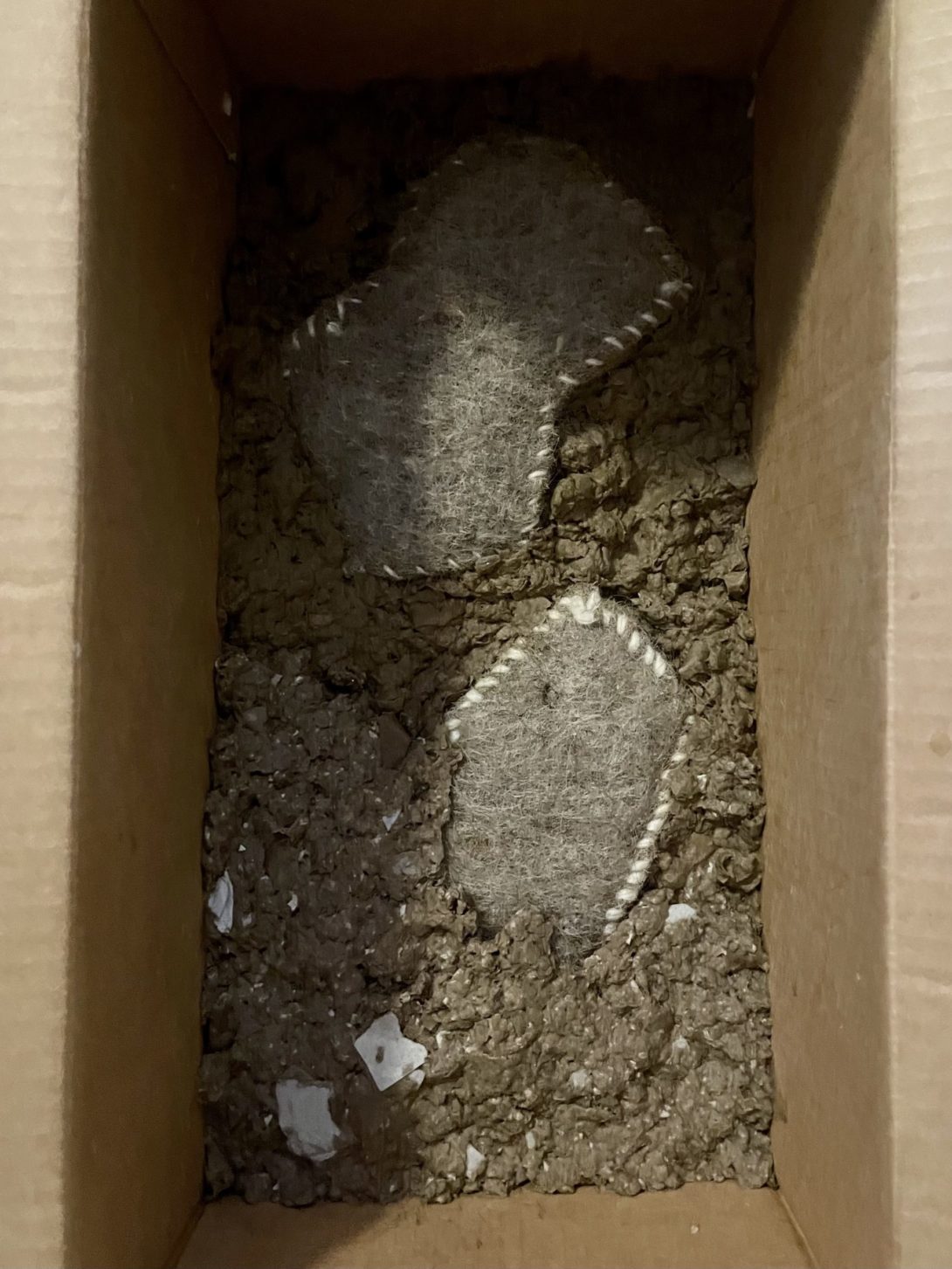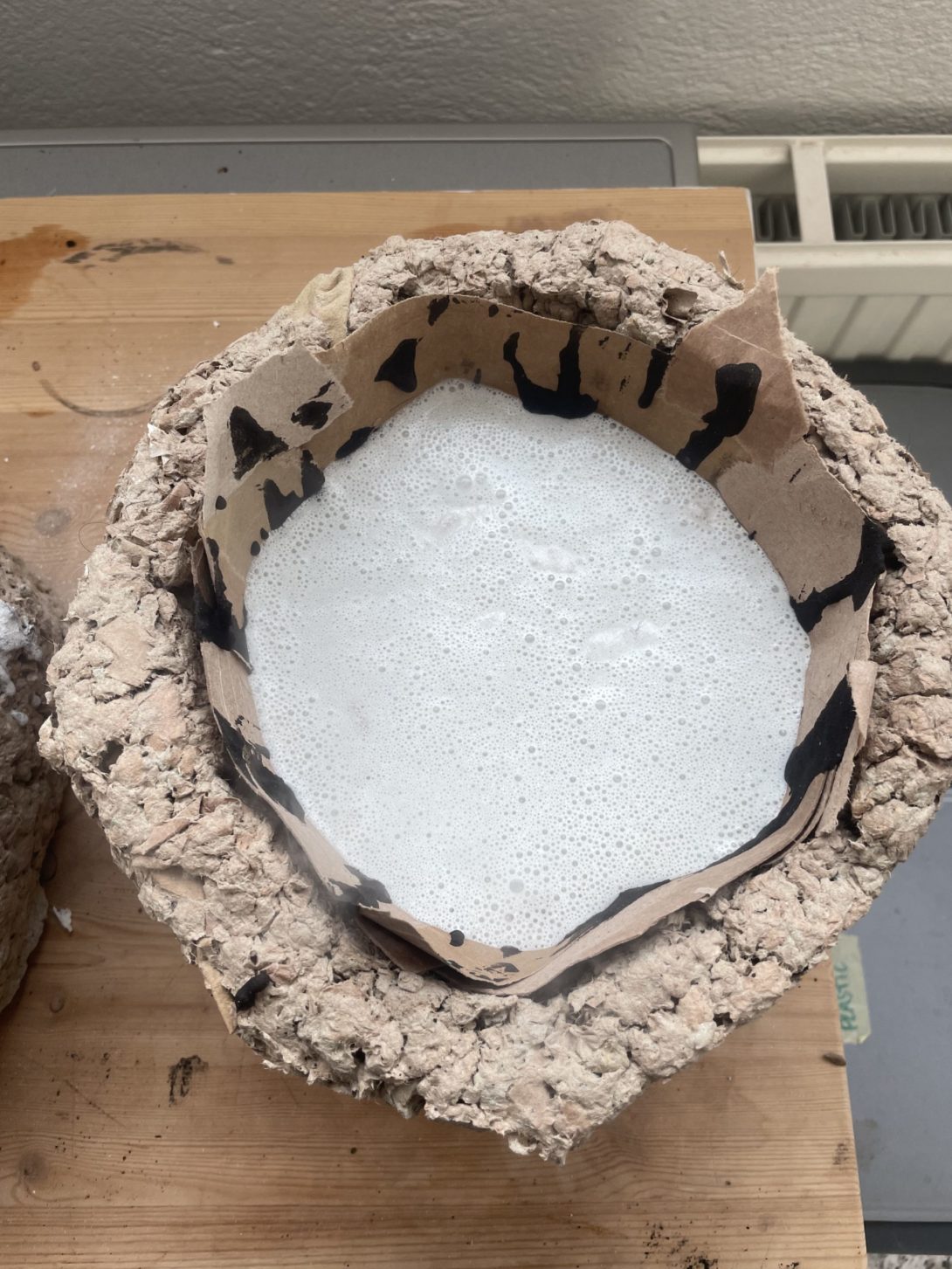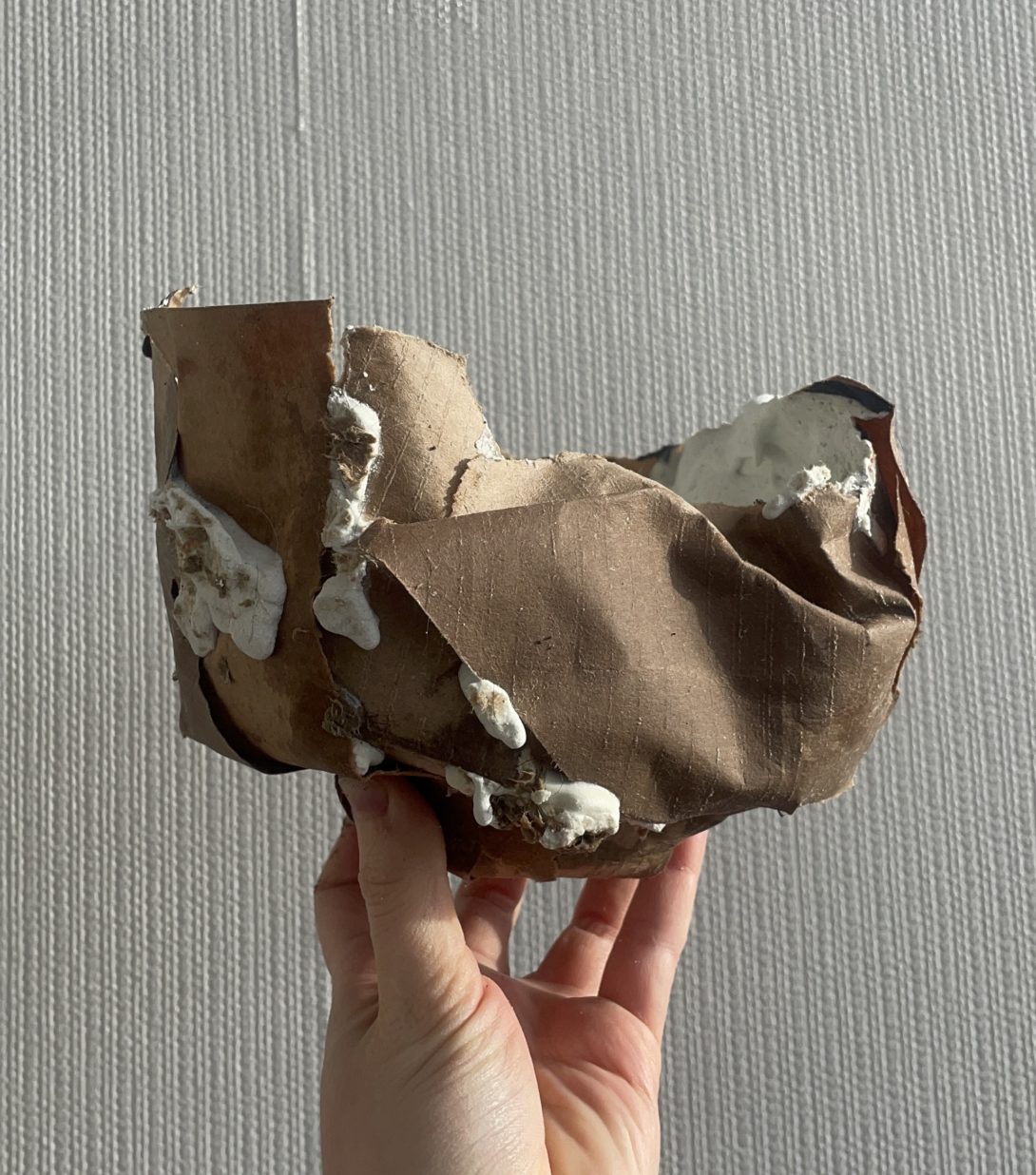About the project
Bio-Pottery is a material and process driven exploration of reformulating the ceramic slip casting process for the nomadic creative to make the ceramic practice more accessible and utilize local waste stream systems. Bio-Pottery takes advantage of local waste stream systems to divert these valuable resources into a circular creative process.
The dish set Glacial Bio-Pottery explores Iceland’s unlikely resources for form, mold, and casting materials to create bio-based dishes inspired by Iceland’s ash covered glaciers. The “three” step process of the Glacial Bio-Pottery dish set is of form, mold, and casting, where each step utilizes different waste streams in Iceland; waste wool for form development, paper waste for mold making, and food waste for slip casting. Each step has the ability to be recycled in the Bio-Pottery process and at the end of its usability return to the soil through composting. The process of Bio-Pottery evokes an intimate and transparent connection with waste materials that can be adapted to anywhere.
Bio-Pottery encourages creatives to engage with their community for material possibilities of reformulating ceramic slip casting. By involving one’s community while researching local resources it opens up meaningful conversations of waste, recycling, upcycling, and collaborations with unlikely industries.
Bio-Pottery can be practiced in a home studio allowing greater accessibility to the ceramic practice and use for other creative disciplines.
About Bio-Pottery’s approach
The documentation and research of Glacial Bio-Pottery is available on an open source website. Having the Bio-Pottery process accessible allows for my current use of waste stream systems to function as a reference for other nomadic creatives to evaluate their local resources for ceramics or other disciplines.
As mentioned above, Bio-Pottery strives to engage communities to not only explore waste options but also open up valuable conversations and support unexpected collaborations. Bio-Pottery’s process is also environmentally regenerative by engaging with waste streams as opposed to virgin materials.
Bio-Pottery supports an ecosystemic approach to the ceramic practice as it challenges the throwaway consumerism society we live in today. It makes us reevaluate our waste stream systems and confront the value of these waste materials that can divert our need to continually rely on new raw materials. The process of Bio-Pottery evokes an intimate and transparent connection with waste materials that can be adapted to any community.
About the designer
Alice Sowa is a young designer and researcher from the San Francisco Bay Area now based in Iceland to further develop her creative career with a focus on sustainability. She holds a BFA in Industrial Design from Massachusetts College of Art and Design and a postgraduate certificate from Fabricademy Textile Academy. Her diverse experience in product design, textiles, teaching, and bacteria dye research has equipped her with a unique skill set and a deep appreciation for the intersection of creativity and technology. Alice’s creative drive is to further explore regenerative materials and processes for a sustainable future through textiles and community empowerment.

